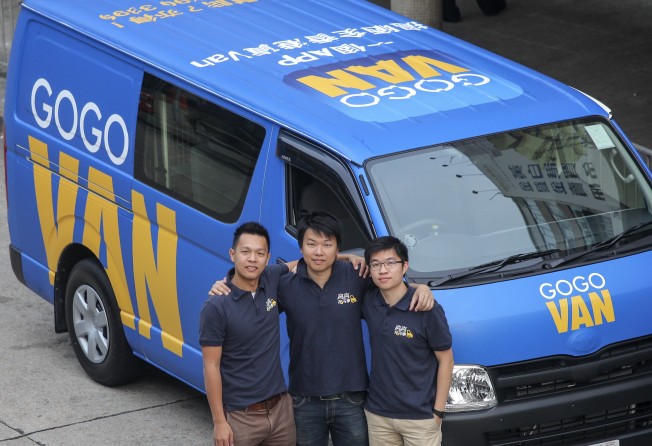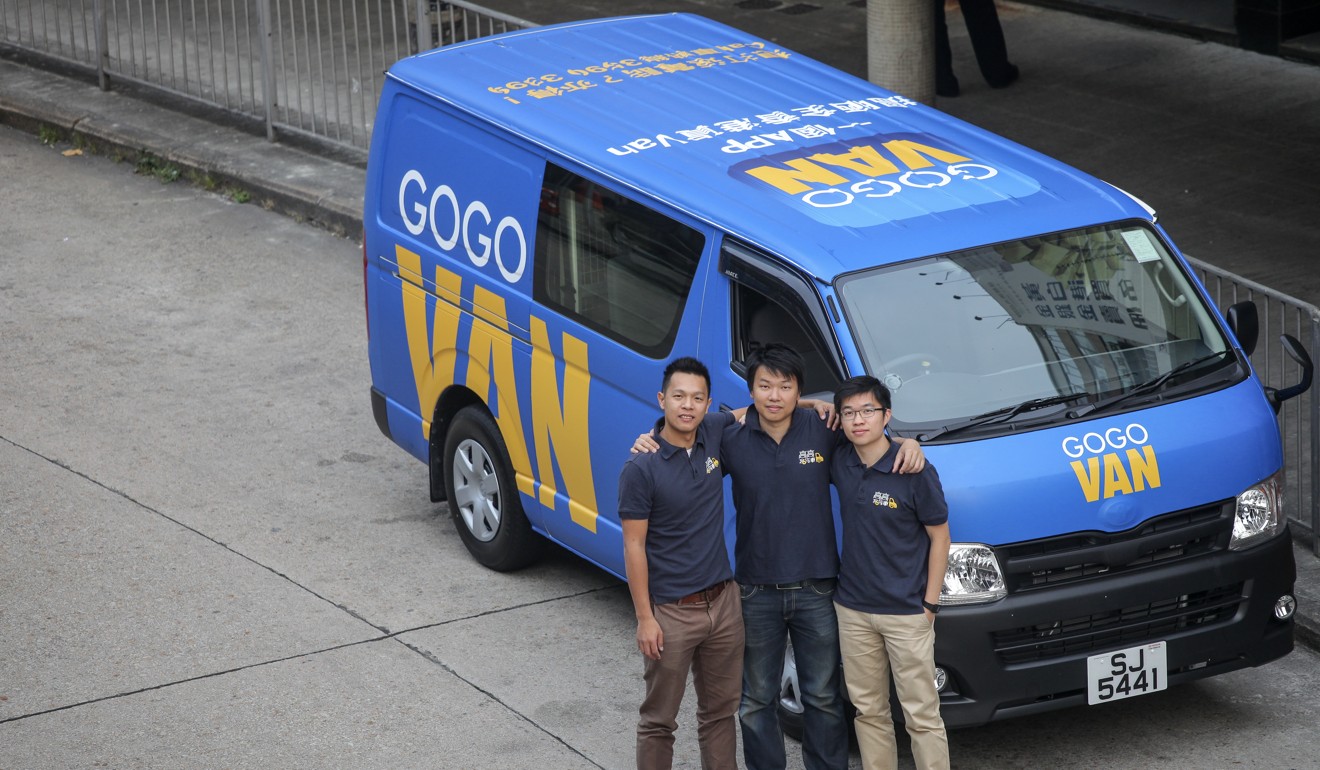What will it take for GoGoVan’s founder to raise capital in his hometown, Hong Kong?
A Hong Kong listing may take place in the next one to two years for GoGoVan, said co-founder Steven Lam Hoi-yuen

Now that GoGoVan has become Hong Kong’s first billion-dollar start-up, will the three founders of the on-demand van hire service pick their hometown if they ever need to raise capital to fund their expansion?
“We definitely have a plan to be listed in Hong Kong,” said Steven Lam Hoi-yuen, chief executive officer and co-founder of the company, during a Beijing interview with the South China Morning Post. “That’s one of the goals as a Hong Kong company, and that’s really something that our team wants to achieve.”
That would add GoGoVan to the litany of voices clamouring for Hong Kong Exchanges & Clearing Ltd. (HKEX) to establish a new board for start-ups and technology companies to raise capital in the city. The bourse operator is overseeing a public consultation on its proposal to divide the new board into two segments called the New Board Premium and New Board Pro, segregated by investor-protection standards commensurate with risks.
Hong Kong had been missing out on the surge in initial public offerings (IPOs) by technology companies, which tripled in value to US$18.87 billion in the first eight months of 2017, according to Thomson Reuters data. Asia’s third-largest equity bourse by capitalisation wasn’t even among the top 10 of technology IPOs during the period.
At issue are Hong Kong’s listing rules, which currently don’t allow start-ups and companies with dual class chares -- common in many technology companies -- to list in the city.
The HKEX’s plans for a new board would “set a foundation for GoGoVan to consider an IPO seriously,” Lam said.

GoGoVan, founded in Hong Kong in 2013, merged with 58 Suyun -- the freight haulage business of 58.com, mainland China’s answer to Craiglist -- two weeks ago to have a valuation of more than US$1 billion, a “unicorn” in the lexicon of the venture capital industry. The merger’s investors include private equity funds KKR & Co and New Horizon Capital, as well as technology companies Tencent Holdings and Alibaba Group Holding. Alibaba also owns the Post.
Still, a stock listing is not the endgame for GoGoVan, which Lam founded with Nick Tang Kuen-wai and Reeve Kwan Chun-ma. The merged company, using the name GoGoVan in English and 58 Suyun in Chinese, plans to extend its reach to 200 more Chinese cities. It will start offering services to corporate clients in 40 mainland cities, and step into more Southeast Asian markets in the next two to three years.
With the merger, GoGoVan hopes to ride on the boom in China’s logistics market, which surpassed the United States in 2015 as the world’s largest, estimated at US$1.6 trillion according to iResearch. Growth is expected at a compounded rate of 2.1 per cent per year from 2016 to 2021, iResearch said.
“There are a lot of courier companies in China,” said Lam. “A lot of them are big. We are building a logistic network that can support whatever movement in the cities.”
Lam said GoGoVan had focused on business to business operation in eight cities in China, working with bicycle-sharing firms, convenience stores and logistic hubs . “That part was growing really fast in China,” he said.
Lam, 31, has already been in talks with Alibaba’s Tmall and Taobao online shopping platforms on different projects. GoGoVan was among the first batch of start-ups to get funding from Alibaba ‘s Hong Kong Entrepreneurs Fund, a non-profit initiative.
“By the time we know it’s the right time to talk to Alibaba,” said Lam. “We definitely think it’s a good partner down the road. Just look at the business scope, there s lot of ways we can work together and provide value to each other.”
Lam grew up in a public housing estate in Hong Kong before moving to the US for higher education. “Our culture is quite similar [with 58 Suyun],” he said. “The mindset of service quality in Hong Kong I guess is still a little different from China. How we bring that quality level to China would be part of the integration that I focus on.”